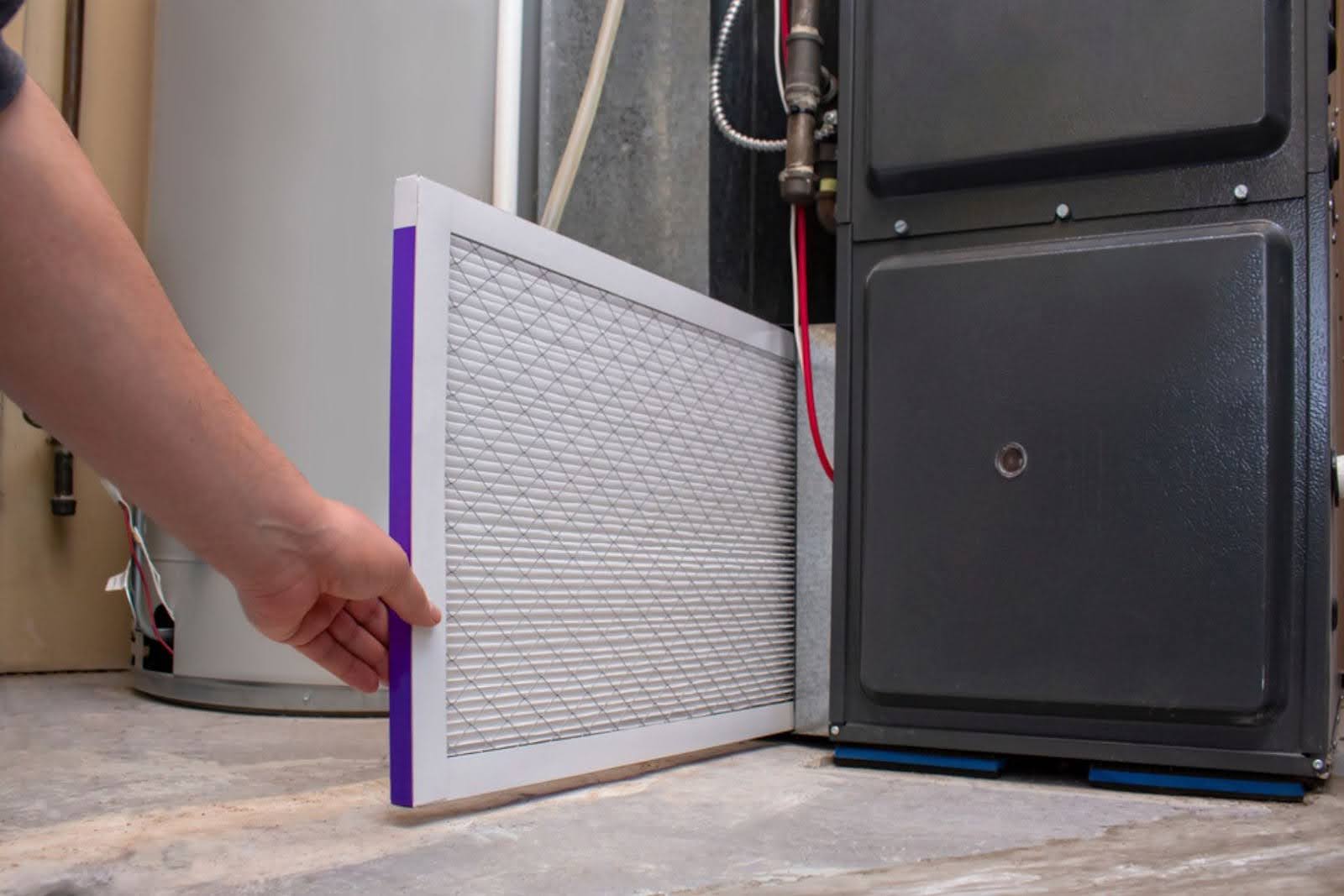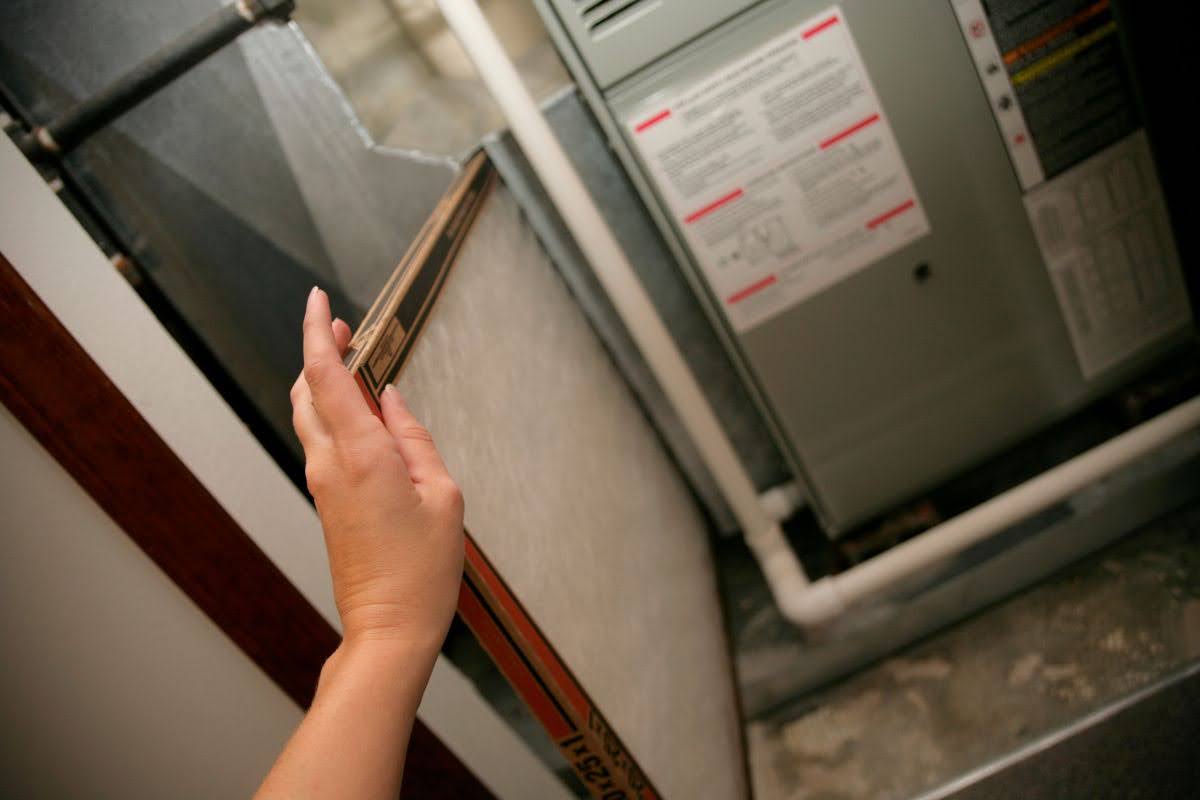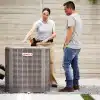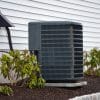Installing a furnace filter is an important maintenance task to ensure your heating and cooling system operates efficiently and maintains good air quality in your home. Here’s a step-by-step guide on how to properly install a furnace filter:
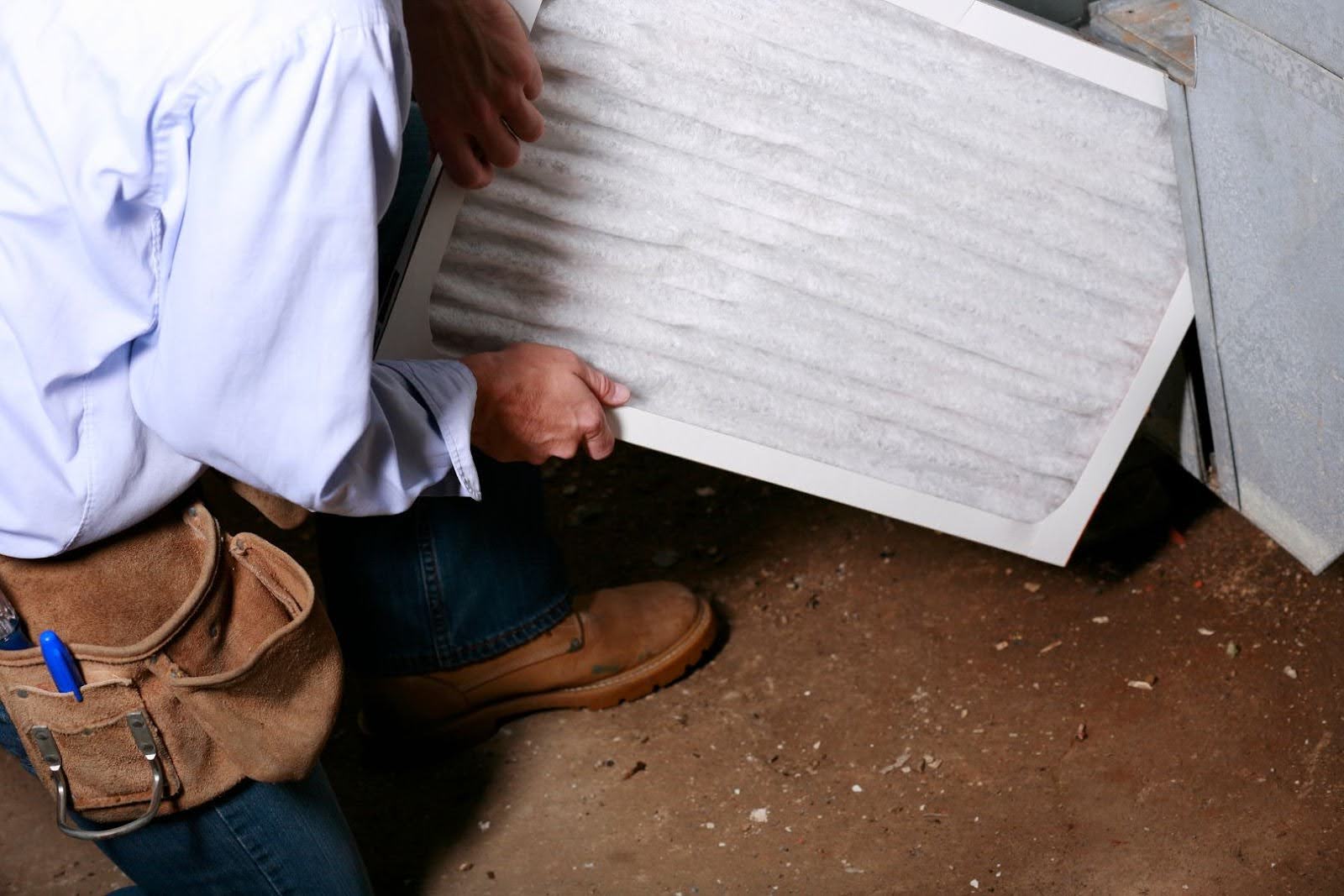
1. Turn Off the HVAC System: Ensuring Safety and Efficiency
Ensuring the safety of your home and yourself is paramount. When dealing with Natural Gas and Propane furnaces, the process involves simply turning off the furnace. For Electric furnaces, the procedure requires disconnecting the power, a necessary step for proper furnace filter installation. Locate the circuit breaker or fuse box and turn off the corresponding circuit that powers the furnace.
2. Locate the Filter Compartment
The journey begins by identifying the filter compartment’s location, a crucial step in the correct way for furnace filter installation. This compartment varies based on your furnace type. For Natural Gas and Propane furnaces, it is often near the blower motor or combustion chamber. Electric furnaces house the filter close to the air handler. Properly locating this compartment is essential for routine checks and preventive furnace repair.
3. Remove the Old Filter
As you remove the old filter, take this opportunity to assess the unique characteristics of your furnace, emphasizing the importance of the correct way for furnace filter removal. Electric furnaces for example might accumulate dust near the blower motor, affecting overall efficiency. These observations provide valuable insights into the specific needs of your heating system.
4. Inspect the Filter
Inspecting the filter transcends a routine check. Customize your inspection based on the intricacies of your furnace type for a comprehensive understanding and to check proper furnace filter installation.
5. Choose the Right Replacement Filter
Selecting the right replacement filter is pivotal for optimal performance and proper furnace filter installation, reducing the likelihood of issues that might require furnace repair. Check your furnace’s manual for size specifications and recommendations. For Natural Gas and Propane furnaces, consider filters with high MERV ratings to capture fine particles and protect the combustion system.
Electric furnaces may benefit from electrostatic or HEPA filters for improved air quality. Tailor your choice to the unique demands of your specific furnace type.
6. Install the New Filter: Safe Installation Tips
The installation of the new filter requires meticulous attention to airflow direction, a detail crucial for effective filtration. Align the arrow or directional indicator on the filter with the airflow direction, proper alignment ensures efficient filtration tailored to your system’s design, promoting cleaner air circulation throughout your home and reducing the need for furnace repair.
7. Replace the Access Panel (if applicable)
Furnaces feature an access panel covering the filter compartment. Ensure a secure fit when replacing this panel, creating an airtight seal—a paramount step in proper furnace filter installation. Proper sealing prevents air leaks, allowing the filter to function optimally and contribute to the overall efficiency of your heating system.
8. Turn On the HVAC System
Turning your furnace back on marks the moment when the newly installed filter begins its work. Whether you have a Natural Gas, Electric, or Propane furnace, take note of any initial behaviors. For gas furnaces, monitor combustion patterns, and for electric models, observe airflow and listen for any unusual sounds. This step initiates a cleaner and more efficient heating process tailored to the specific characteristics of your furnace type, ensuring optimal performance and comfort—the ultimate goal of proper furnace filter installation.
9. Monitor and Set a Reminder
Regular monitoring of your furnace filter is essential for sustained efficiency. Customize your monitoring frequency based on your furnace type and usage. Electric furnaces benefit from periodic airflow checks. Set reminders for filter replacement every 1-3 months, aligning with the specific demands of your heating system—the correct way for furnace filter maintenance. Consistent filter replacement is a proactive measure that ensures continued efficiency, reduces strain on your HVAC system, and prolongs its overall lifespan, minimizing the chances of unexpected furnace repair.
Conclusion
Regularly changing your furnace filter helps maintain indoor air quality, improves energy efficiency, and extends the lifespan of your HVAC system. If you’re unsure about the type or size of filter to use or need assistance with installation, it’s a good idea to consult with a professional HVAC technician.
